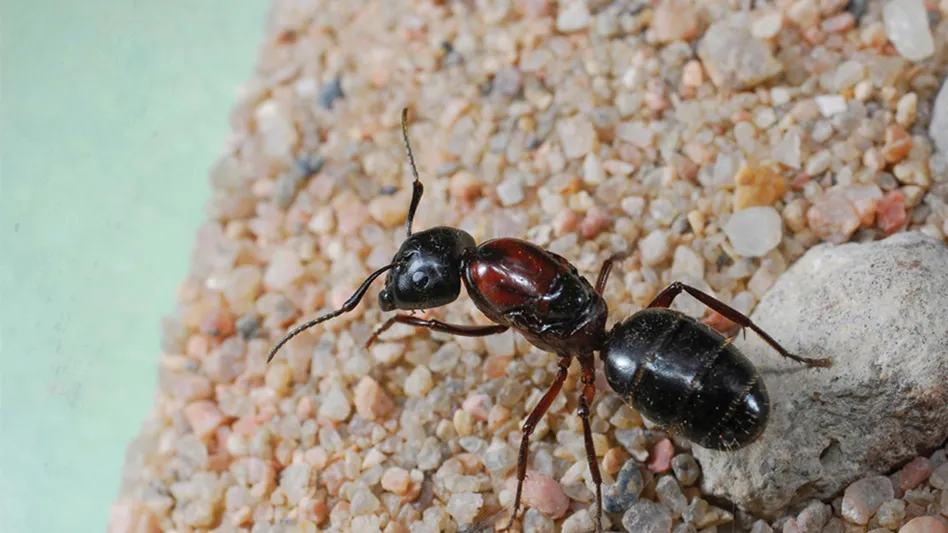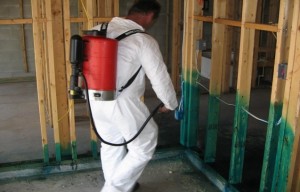Cost Effective Ant Control Solutions: Keep Your Space Ant-Free
Cost Effective Ant Control Solutions: Keep Your Space Ant-Free
Blog Article
Ecological Impact of Pest Control: Harmonizing Efficiency With Sustainability
The ecological influence of pest control is a crucial concern that requires a delicate balance in between accomplishing effectiveness in handling bugs and ensuring sustainability of our ecological communities. From the usage of unsafe chemicals that permeate right into our dirt and water to the unexpected repercussions on non-target varieties, the repercussions of conventional parasite control practices are far-ranging.
Harmful Chemicals in Bug Control
The usage of damaging chemicals in bug control positions significant ecological and health and wellness dangers that warrant cautious factor to consider and reduction techniques. Pesticides, herbicides, and insecticides are frequently made use of to remove parasites, yet their extensive application can result in unintended consequences. These chemicals can contaminate dirt, water resources, and the air, impacting not just the targeted bugs but also useful insects, wild animals, and human beings.

To attend to these dangers, incorporated pest monitoring (IPM) techniques are being advertised as an extra lasting option. IPM involves a combination of methods such as organic control, habitat adjustment, and the targeted use pesticides as a last resource (ant control unionville nc). By embracing an alternative method to pest control, we can decrease the ecological and wellness influences linked with damaging chemicals while effectively managing pest populaces
Effect on Non-Target Species
Considering the unintended repercussions of pest control techniques, the influence on non-target varieties is an essential element that requires thorough assessment. While insect control steps intend to target details pests, other organisms in the environment may be unintentionally impacted. Non-target varieties, including valuable pests, birds, creatures, and also plants, can endure straight or indirect harm from chemical applications or biological control techniques.
Pesticides designed to battle a particular insect bug may damage pollinators like bees or all-natural predators such as ladybugs. Biological control representatives, if not species-specific, can present risks to unexpected targets, disrupting the eco-friendly equilibrium.
To minimize the influence on non-target species, integrated bug monitoring (IPM) approaches that stress an all natural method to pest control are recommended. These techniques prioritize the usage of eco pleasant methods, lessening harm to beneficial microorganisms while successfully managing pest populations. Conducting extensive risk evaluations and keeping an eye on the outcomes of pest control efforts are important actions in safeguarding non-target species and advertising overall ecosystem health and wellness.
Dirt and Water Contamination
Unexpected ecological consequences of insect control methods extend beyond affecting non-target varieties, with considerable ramifications for soil and water contamination. Chemicals, herbicides, and chemical plant foods utilized in pest control can leach into the soil and infect groundwater, positioning a danger to both terrestrial and marine environments. Dirt contamination can interfere with the equilibrium of bacteria essential for nutrient cycling and plant development, leading to decreased dirt fertility and efficiency. Additionally, these chemicals can continue the atmosphere for extended periods, gathering in the soil and potentially going into the food chain.
Water contamination is an additional vital concern associated with pest control methods. To mitigate soil and water contamination from parasite control tasks, incorporated insect management approaches that prioritize sustainability and decrease chemical inputs are important.
Air Contamination From Pesticide Use
Direct exposure to air-borne chemicals during farming applications poses a substantial worry for air contamination control measures. Additionally, pesticide drift, where chemicals are carried by the wind to unplanned locations, can lead to the contamination of close-by communities and water bodies.

Strategies for Sustainable Pest Control
In the realm of agricultural techniques, implementing lasting parasite control methods is extremely important for preserving eco-friendly equilibrium and securing crop yields. Lasting bug control highlights using eco-friendly methods to take care of pest populations effectively while minimizing injury to non-target organisms and communities. Integrated Insect Monitoring (IPM) is an extensively adopted method that combines biological, cultural, physical, and chemical control methods to accomplish lasting pest management options.
One secret strategy in lasting bug control is advertising biodiversity within agroecosystems. By improving all-natural opponents of bugs, such as parasitoids and predators, farmers can lower the demand for synthetic pesticides. Plant turning and diversification are also reliable techniques to disrupt pest life cycles and produce less favorable problems for insects to thrive. In addition, using pest-resistant plant selections and using methods like trap cropping can assist decrease pest stress without relying heavily on chemical treatments. Inevitably, by incorporating these sustainable parasite control techniques, farmers can attain a balance between pest management effectiveness and environmental stewardship.
Verdict
Finally, the environmental impact of parasite control techniques should be carefully thought about to stabilize performance with sustainability. Damaging chemicals used in insect control can cause dirt and water contamination, air contamination, and injury non-target types - termite control. It is crucial to execute sustainable pest control techniques to lessen these unfavorable impacts other on the environment and advertise a much healthier community for future generations
By adopting an alternative method to pest control, we can minimize the ecological and health and wellness impacts linked with hazardous chemicals while properly managing pest populations.

To mitigate the air contamination created by pesticide use, it is crucial to embrace integrated insect administration methods that prioritize the usage of non-chemical pest control techniques, such as crop rotation, all-natural killers, and immune crop varieties. Sustainable insect control stresses the usage of environmentally pleasant methods to manage bug populaces successfully while lessening injury to non-target microorganisms and environments. Integrated Parasite Administration (IPM) is a widely taken on strategy that combines organic, cultural, physical, and chemical control techniques to accomplish lasting pest monitoring remedies.
Report this page